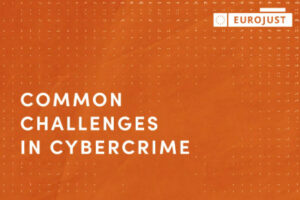Tackling cybercrime: common challenges and legislative solutions identified by Europol and Eurojust

The latest joint report by Europol and Eurojust, Common Challenges in Cybercrime, explores the persistent and emerging issues that hinder cybercrime investigations. This year’s edition not only identifies key obstacles—particularly in the field of digital evidence—but also examines how new legislative measures could help address them.
The report highlights several pressing challenges faced by law enforcement, including the overwhelming volume of digital data, the risk of data loss, and the persistent barriers to accessing critical information due to legal and technical constraints. The increasing use of anonymisation services has further complicated efforts to track criminal activities online.
To help mitigate these challenges, the report explores the impact of new EU legislative tools, such as the e-Evidence Package, the Digital Services Act, and the EU AI Act. These instruments aim to facilitate data access, improve cross-border cooperation, and enhance investigative capabilities. However, their effectiveness will largely depend on how they are implemented and integrated into existing operational strategies.
The report also underscores the value of the strategic cooperation between Europol and Eurojust, highlighting initiatives such as the SIRIUS Project, which has strengthened collaboration in cybercrime investigations. These efforts continue to play a crucial role in helping law enforcement agencies navigate an increasingly complex digital landscape.
While challenges remain, the report emphasises the potential of these new legislative measures to strengthen the fight against cybercrime. Equipping law enforcement with the right tools and ensuring their effective use in investigations will be key to staying ahead of evolving cyber threats.

